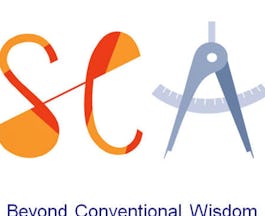Filter by
The language used throughout the course, in both instruction and assessments.
1,056 results for "mean stack"

Rutgers the State University of New Jersey
Skills you'll gain: Data Analysis, Supply Chain Systems, Supply Chain and Logistics, Strategy and Operations, Leadership and Management, Inventory Management, Operations Management, Business Analysis, Planning, Operational Analysis, Market Analysis, Strategy, Business Intelligence, Process Analysis, Business Process Management, Forecasting, Warehouse Management, Data Management, Probability & Statistics, Statistical Analysis, Customer Analysis, General Statistics, Performance Management, Retail Store Operations, Statistical Visualization, Data Model, Regression, Statistical Tests, Supplier Relationship Management, Basic Descriptive Statistics, Retail Sales, Data Visualization, Data Science

Skills you'll gain: Digital Marketing, Marketing, Search Engine Optimization, Marketing Management, Advertising, Media Strategy & Planning, Persona Research, Web Design, Web Development, Web Development Tools

Skills you'll gain: Computer Networking, Network Architecture, Network Model, Networking Hardware, Network Analysis, Critical Thinking, Problem Solving, Computer Architecture, Human Computer Interaction, Network Security, Cloud Computing

Rutgers the State University of New Jersey
Skills you'll gain: Supply Chain Systems, Supply Chain and Logistics, Planning, Strategy and Operations, Inventory Management, Leadership and Management, Operations Management, Business Analysis, Data Analysis, Estimation, Forecasting, Microsoft Excel, Spreadsheet Software, Statistical Analysis, Strategy, Supplier Relationship Management, Warehouse Management, Probability & Statistics, Process Analysis, Transportation Operations Management, Project Management, Store Management, Operations Research
 Status: Free
Status: FreeUniversity of Michigan
Skills you'll gain: Decision Making, Emotional Intelligence, Human Learning, Leadership and Management, People Development, Leadership Development, People Analysis, Persona Research, Planning, Professional Development

Skills you'll gain: Software Engineering, Application Development, Software Architecture, Computer Programming, Python Programming, Software Engineering Tools, Cloud Applications, DevOps, Security Engineering, Cloud Computing, Programming Principles, Cloud Infrastructure, Cloud-Based Integration, Microarchitecture, Agile Software Development, Communication, Full-Stack Web Development, IBM Cloud, Kubernetes, Software Security, Software Testing, Docker (Software), Linux, User Experience Design, Web Development, Collaboration, Leadership and Management, Data Analysis, Django (Web Framework), Mergers & Acquisitions, SQL

University of California San Diego
Skills you'll gain: Algorithms, Theoretical Computer Science, Computer Programming, Data Structures, Problem Solving, Mathematics, Computational Thinking, Computer Programming Tools, Computational Logic, Critical Thinking, Graph Theory, Programming Principles, Mathematical Theory & Analysis, C++ Programming, Algebra, Software Testing

Skills you'll gain: Digital Marketing, Marketing, Marketing Management, Data Analysis, Media Strategy & Planning, Data Management, Market Analysis

Skills you'll gain: Accounting, General Accounting, Financial Accounting, Business Analysis, Data Analysis, Financial Analysis, Cash Management, Finance, Financial Management, Accounts Payable and Receivable, Cost Accounting, Inventory Management, Accounting Software, Sales, Taxes
 Status: Free
Status: FreeUniversity of California, Santa Cruz
Skills you'll gain: Critical Thinking

DeepLearning.AI
Skills you'll gain: Machine Learning, Tensorflow, Deep Learning, Machine Learning Algorithms, Artificial Neural Networks, Applied Machine Learning, Human Learning, Computer Programming, Python Programming, Machine Learning Software, Natural Language Processing, Computer Vision, Forecasting, Network Model, Statistical Machine Learning, Statistical Analysis

Indian School of Business
Skills you'll gain: Finance, Investment Management, Financial Analysis, Securities Trading, Accounting, Algorithms, Strategy, Financial Accounting, Market Analysis, Business Analysis, Statistical Analysis, Strategy and Operations, Account Management, Accounts Payable and Receivable, General Accounting, Market Research, Performance Management, Cash Management, Correlation And Dependence, Critical Thinking
In summary, here are 10 of our most popular mean stack courses
- Supply Chain Analytics: Rutgers the State University of New Jersey
- Attract and Engage Customers with Digital Marketing: Google
- The Bits and Bytes of Computer Networking: Google
- Supply Chain Management: Rutgers the State University of New Jersey
- The Science of Success: What Researchers Know that You Should Know: University of Michigan
- IBM Back-End Development: IBM
- Data Structures and Algorithms: University of California San Diego
- Assess for Success: Marketing Analytics and Measurement: Google
- Intuit Academy Bookkeeping: Intuit
- Russian History: from Lenin to Putin: University of California, Santa Cruz










